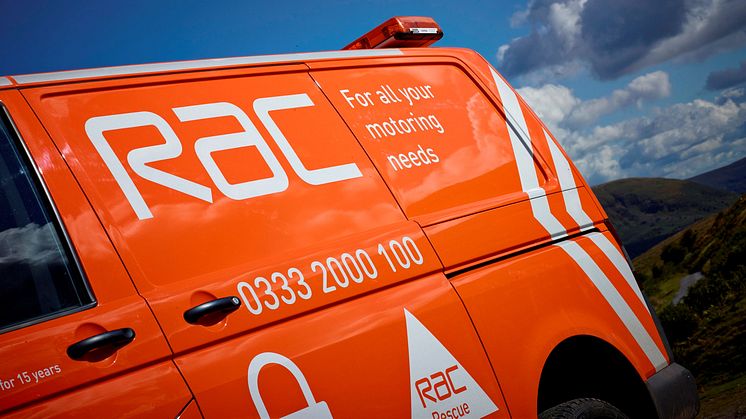
Press release -
Traffic police numbers cut by 1,279 officers in five years
23% reduction in roads policing officers in England and Wales from 2010 to 2014
The number of police dedicated to enforcing motoring offences in England and Wales has fallen by an alarming 23% in the last five years which means there are now 1,279 fewer officers patrolling the road, the RAC can reveal.
The reduction – equivalent to five fewer officers a week – comes as a result of the 43 police forces cutting their roads policing officers from 5,635 to 4,356 between the end of March 2010 and 2014.
Government statistics published in response to a parliamentary question* show that Devon and Cornwall police has suffered the largest cut – 76% – taking its traffic officers from 239 to just 57.
Essex’s traffic police numbers fell by 71%, Nottinghamshire’s by 68%, Wiltshire’s by 47% and both the Avon and Somerset and Dorset forces traffic function diminished by 39% each. Only two forces have increased their traffic officer count in this time: Suffolk by 32% – 67 officers to 88; and Warwickshire by 230% – 10 to 37.
The findings support research conducted for the RAC Report on Motoring** which found that 60% of motorists now think there are insufficient numbers of police officers on the roads to enforce driving laws and as a result there is little chance of law-breakers being caught and prosecuted for anything other than speeding or running a red light: offences typically enforced via cameras.
Two in five drivers (40%) believe anyone committing offences such as texting at the wheel of either a moving or stationary vehicle or the comparatively new offences of tailgating, middle lane hogging or undertaking on the motorway will more than likely get away with it.
RAC head of external affairs Pete Williams said: “These figures make a mockery of motoring law – if there are not enough police on the road, we can introduce all the new rules we want, but those breaking them just will not get caught. While cameras are good at catching speeders and drivers who go through red lights, offences that relate to general poor behaviour at the wheel still rely on a police officer to enforce them.
“The majority of motorists in England and Wales claim to obey the law of the road and would therefore like to think the minority of drivers that flout the rules stand more chance of getting caught and properly punished than they seem to at the moment.
“Our research shows that millions of motorists are frustrated with the cut in traffic police numbers and believe the chances of drivers being pulled up for breaking the law are now minimal. Motorists are tired of constantly seeing other drivers breaking the law and getting away with it so it is hardly surprising that they want to see a greater police presence on our roads to enforce motoring legislation more effectively, which would also act as a genuine deterrent.
“The Government should also be asking whether the reduction in traffic police is in any way connected to the recent rises in the number of deaths and injuries on our roads.”
RAC Report on Motoring 2014 findings:
Opinions on ‘likelihood of being caught’ for common offences
Texting while stopped in traffic: 51% unlikely / 18% likely / 22% uncertain
Texting on the move: 42% unlikely / 29% likely / 21% uncertain
Tailgating: 47% unlikely / 24% likely / 21% uncertain
Middle lane hogging: 49% unlikely / 22% likely / 22% uncertain
Aggressive driving: 40% unlikely / 30% likely / 24% uncertain
Undertaking on the motorway: 49% unlikely / 20% likely / 23% uncertain
Speeding: 28% unlikely / 45% likely / 21% uncertain
Running a red light: 28% unlikely / 46% likely / 19% uncertain
Of those motorists surveyed for the RAC Report on Motoring who have speeding points on their licences half (49%) say they were trapped by a speed camera, whereas only a quarter (24%) were caught by a police officer.
Topics
Categories
Notes to Editors
About the RAC
With more than eight million members, the RAC is one of the UK's most progressive motoring organisations, providing services for both private and business motorists. Whether it's roadside assistance, insurance, buying a used car, vehicle inspections and checks, legal services or up-to-the-minute traffic and travel information – the RAC offers a solution for all motoring needs. The RAC is committed to making motoring easier, safer, more affordable and more enjoyable for drivers and road users.
The RAC is the motorist’s champion and campaigns to support the interests of its members and UK motorists at a national level, including advancing levels of road safety, supporting the needs of young drivers and voicing concerns about the increasing cost of motoring. The RAC’s annual Report on Motoring – first published in 1989 – provides a clear insight into the concerns and issues facing today’s motorists.
For the very latest news on UK fuel prices, check RAC Fuel Watch or follow #racfuelwatch on Twitter. This is a comprehensive guide to the latest UK unleaded petrol and diesel prices – both at the wholesale level and at the pump. RAC Fuel Watch analyses how prices changed through the previous month and compares the most recent prices with those from three, six and 12 months before.
The RAC supports and is a founding member of FairFuelUK which campaigns for fairer taxes on petrol and diesel.
Key facts:
- RAC patrols fix four out of five vehicles at the roadside and on average within 34 minutes
- RAC vans carry more than 500 parts and tools to get members’ vehicles going again
- 98% of members would recommend RAC Rescue to their friends and family



